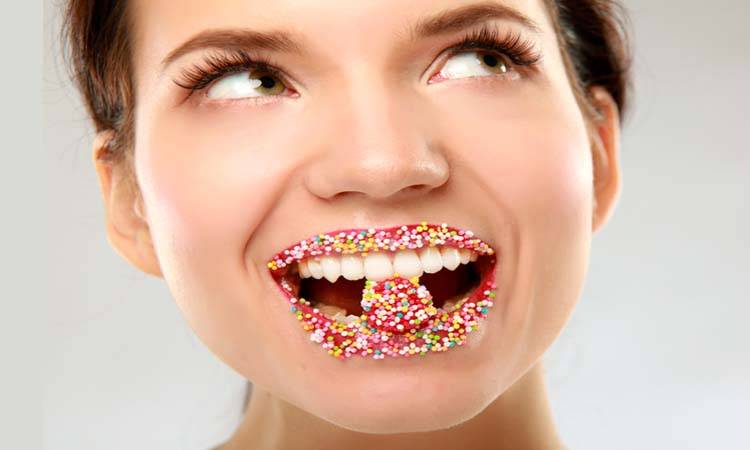
Remember, when you give sugar to the sweet tooth, you have also been feeding the bacteria in the mouth.
‘My sweet tooth wants sugar’
Many people have blamed their preference for sugary foods on their “sweet tooth”. Sugar consumption has been proved hazardous for health, yet people crave it and fall into life-altering habits. Now almost every packed food contains intrinsic and extrinsic sugars. Consequently, people who exclusively crave sugary foods and consume them in large amounts have to face several problems.
Impact of sugars on health
Sugar can cause weight gain and pose a severe threat to the heart and other vital organs. Type 2 diabetes, increased cellular ageing, kidney disease, and cognitive decline are just a few damages brought about by added sugar. Hence, the question arises of how much sugar is safe to consume? As it has no nutritional significance, The Institute of Medicine, which sets Recommended Dietary Allowances, has not issued a particular number for sugar. But it is suggested to keep the daily caloric intake less than 10%.
Effects on teeth
Sugars serve as the thriving substrate for the bacteria in our mouths. After consuming sugar, the bacteria produce acid, which leads to tooth demineralisation and eventually cavities. It is the primary reason dentists stress cutting out candies and chewy toffees if patients are prone to caries. Additionally, bad brushing habits may also aid the process of demineralisation.
Mental health drawbacks
Furthermore, a study published in the journal Scientific Reports tracked the effects of sugar on mood. It suggests that uncontrolled sugar intake hurts long-term psychological health. The imbalances in neurotransmitters increase symptoms of depression and anxiety. On the other hand, a healthy diet can instantly improve one’s mood and lead to prolonged satisfaction.
Ways to cut down sugar
Accordingly, there are some ways to control sugar intake in one’s diet. Start with reducing foods with added sugar. Make a habit of reading labels for sweeteners. You can also replace candy with a mix of trail mix or dark chocolate. In addition, you should focus mainly on the intake of whole natural foods. Besides, brushing twice a day will result in the dislodgment of sticky foods.
In conclusion, the purpose of sugar is just taste enhancement, and as it has zero nutritional value, it is essential to consider eliminating this substance from your diet. By incorporating small daily healthy changes, one can keep their sugar consumption to a minimum.

Dr Rimsha Qasim
The author is contributing writer at Dental News Pakistan and can be reached at rimsha.qasim@duhs.edu.pk

